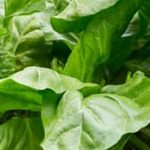What is the best compost to buy for vegetable gardens? Using compost in vegetable gardens is of utmost importance for the health and productivity of your plants.
In this article, we will explore the qualities and ingredients to look for in compost, compare organic and non-organic options, discuss the types of compost suitable for different vegetables, and provide tips for effective application. Whether you choose to purchase compost or make your own, understanding how to utilize it effectively can make a significant impact on the success of your vegetable garden.
Compost serves as a nutrient-rich soil conditioner that enhances the fertility and structure of your garden soil. It provides essential organic matter that improves moisture retention, aeration, and microbial activity in the soil, ultimately benefiting plant growth and overall garden health. The key is finding the best compost for your specific needs, which involves considering various factors such as ingredient quality, nutrient content, and sustainability.
As we delve into this topic, you will gain insight into the benefits of using compost in vegetable gardens and learn how to make informed decisions when selecting or creating your own compost. By understanding what makes the best compost for vegetable gardens, you can maximize the potential of your plants while contributing to a more sustainable gardening practice.
What to Look for in Compost for Vegetable Gardens
When looking for compost for vegetable gardens, there are certain qualities and ingredients that should be taken into consideration to ensure the best possible results. One of the most important qualities to look for in compost is its texture. It should be crumbly and loose, allowing for good aeration and water retention in the soil. The ideal compost should also be free from any large debris or chemicals that could harm the plants.
In terms of ingredients, a good compost for vegetable gardens should have a mix of green and brown materials. Green materials such as grass clippings and kitchen scraps provide nitrogen, while brown materials such as dried leaves and wood chips provide carbon. A balanced mix of these organic materials will result in a nutrient-rich compost that can help support healthy plant growth.
Another important factor to consider when choosing compost for vegetable gardens is its acidity or pH level. Most vegetables thrive in a slightly acidic soil, so it’s essential to choose a compost with a pH level between 6.0 and 7.5. Testing the pH level of the compost before use can ensure that it is suitable for the specific needs of the vegetable plants being grown.
| Qualities | Ingredients |
|---|---|
| Crumbly texture | Balanced mix of green and brown materials |
| Free from debris and chemicals | Nitrogen-rich green materials (grass clippings, kitchen scraps) |
| Optimal pH level (6.0-7.5) | Carbon-rich brown materials (dried leaves, wood chips) |
Organic vs Non-Organic Compost
When it comes to choosing compost for your vegetable garden, one of the first decisions you’ll need to make is whether to use organic or non-organic compost. Organic compost is made from natural materials such as food scraps, yard waste, and other biodegradable items. On the other hand, non-organic compost may contain synthetic materials and chemicals. Each type has its own set of pros and cons that should be carefully considered before making a decision.
One of the main benefits of using organic compost in vegetable gardens is that it is environmentally friendly. It helps reduce landfill waste by recycling organic materials, and it promotes sustainability in gardening practices. Additionally, organic compost is rich in essential nutrients and beneficial microorganisms that can improve soil quality and support healthy plant growth. However, one drawback of organic compost is that it may take longer to break down compared to non-organic alternatives.
On the other hand, non-organic compost often contains a more predictable nutrient content because it is typically formulated with specific ratios of essential elements. This can be advantageous for gardeners who want more control over the fertilization process. Non-organic compost may also eliminate weed seeds and pathogens more effectively due to high-temperature processing methods. However, some concerns about chemical residues and environmental impact may arise with the use of non-organic compost in vegetable gardens.
| Compost Type | Pros | Cons |
|---|---|---|
| Organic | Environmentally friendly; Rich in essential nutrients; Promotes sustainability | Longer breakdown time |
| Non-Organic | Predictable nutrient content; Effective weed seed elimination | Potential chemical residues; Environmental impact concerns |
Types of Compost Suitable for Different Vegetables
When it comes to choosing the best compost for your vegetable garden, it’s important to consider the specific needs of different types of vegetables. Not all compost is created equal, and certain plants may require specific qualities in their compost to thrive. Here are some types of compost suitable for different vegetables to help you find the best match for your plants:
- Manure-based Compost: Rich in nutrients, manure-based compost is excellent for heavy feeders like tomatoes, peppers, and corn.
- Leaf Mold: Ideal for vegetables such as lettuce, spinach, and other leafy greens, leaf mold retains moisture well and provides a light, airy texture.
- Mushroom Compost: With its high nutrient content, mushroom compost is well-suited for crops like cucumbers, squash, and melons that benefit from a nutrient-rich growing medium.
- Composted Pine Bark: This type of compost is great for blueberries and other acid-loving plants due to its low pH level.
Consider the specific needs of your vegetable plants when selecting the right compost for your garden. Understanding which type of compost suits each plant will help ensure optimal growth and productivity.
Additionally, it’s important to note that some vegetables have unique requirements in terms of pH level and nutrient content in the soil. Conducting a soil test can help you determine if the current composition meets the needs of your plants or if you need to amend it with specific types of compost. By matching the right type of compost with each vegetable variety in your garden, you can maximize their potential yield and overall health.
How to Make Your Own Compost for Vegetable Gardens
Making your own compost for vegetable gardens is not only a cost-effective option but also a sustainable way to utilize organic waste and improve the health of your plants. Here are some tips on how to create your own compost:
- Start with a good mix of “green” and “brown” materials. Green materials include kitchen scraps, grass clippings, and manure, while brown materials include dry leaves, straw, and wood shavings.
- Layer the green and brown materials in a compost bin or pile, making sure to alternate between the two types. This will provide a good balance of nitrogen and carbon for decomposition.
- Keep the compost moist but not waterlogged, as the microbes responsible for breaking down the material need moisture to thrive.
- Turn the compost regularly to aerate it and speed up the decomposition process. This can be done every few weeks using a pitchfork or shovel.
By following these steps, you can create nutrient-rich compost that is tailored to the specific needs of your vegetable garden. As an added benefit, making your own compost reduces the amount of organic waste that ends up in landfills, contributing to a more sustainable approach to gardening.
Tips for Using Compost Effectively in Vegetable Gardens
Application Methods
When applying compost to your vegetable garden, there are a few different methods you can use. One common method is topdressing, which involves spreading a layer of compost on the surface of the soil around your plants. This helps to improve soil structure, retain moisture, and provide nutrients directly to the plants’ root zones.
Another method is incorporating compost into the soil by mixing it in with the top few inches of soil before planting. This allows for even distribution of nutrients and can help improve overall soil quality.
Frequency of Application
The frequency of applying compost to your vegetable garden will depend on several factors such as the current condition of your soil, the types of vegetables being grown, and environmental conditions. In general, it is recommended to apply compost at least once a year in the spring before planting season begins. However, some gardeners may choose to apply compost more frequently, especially if their soil is particularly poor or if they are growing nutrient-intensive crops.
Tips for Effective Use
To ensure that you are using compost effectively in your vegetable garden, it’s important to consider a few tips. First, make sure that the compost is well-aged and fully decomposed before application to avoid any negative effects on plant growth. Additionally, be mindful of not over-applying compost as excessive amounts can lead to nutrient imbalances and potential harm to plant roots.
Lastly, consider using a variety of compost sources such as kitchen scraps, yard waste, and commercial compost to provide a diverse range of nutrients for your vegetable plants. By following these tips and considering different application methods and frequencies, you can maximize the benefits of using compost in your vegetable garden for healthier plants and higher yields.
How to Maintain the Quality of Compost in Vegetable Gardens
Compost Maintenance: Common Mistakes to Avoid
It is crucial to maintain the quality of compost in vegetable gardens to ensure that it continues to benefit the plants. One common mistake to avoid is not turning the compost regularly. Turning the compost helps aerate it, allowing beneficial microorganisms to thrive and break down the organic matter effectively. Without proper aeration, the compost may become compacted and produce unpleasant odors.
Another mistake is adding diseased or pest-infested plant material to the compost pile. Doing so can lead to the spread of diseases and pests in your vegetable garden when using the compost. It is important to only add healthy plant material, such as fruit and vegetable scraps, leaves, and grass clippings, to maintain the quality of the compost.
Ensuring Longevity of Compost Benefits
To ensure the longevity of benefits from using compost in vegetable gardens, it’s important to store the compost properly. Keeping it covered with a tarp or in a bin can prevent essential nutrients from being leached away by rainwater. Additionally, storing it in a shaded area can help maintain its moisture content, preventing it from drying out too quickly.
Regularly testing the quality of the compost with a simple smell test can also help ensure its effectiveness in providing nutrients for your vegetable plants. A healthy compost pile should have an earthy smell, indicating that it is breaking down properly and ready for use in your garden.
By avoiding common mistakes and taking measures to preserve its quality, you can ensure that your compost continues to benefit your vegetable garden for years to come.
Conclusion
In conclusion, the use of the best compost in vegetable gardens can have a significant impact on plant growth and overall garden health. By understanding the qualities and ingredients to look for in compost, as well as considering the pros and cons of organic versus non-organic options, gardeners can make informed choices that will benefit their plants.
Whether purchasing compost or creating their own, it is important for gardeners to find the best match for their specific vegetables in order to maximize the benefits.
Furthermore, using compost effectively in vegetable gardens involves understanding application methods and frequency. By following tips for effective use and avoiding common mistakes, gardeners can ensure that they are maintaining the quality of the compost over time. This not only maximizes the benefits to plant growth but also ensures the longevity of those benefits for future gardening seasons.
Overall, the impact of using the best compost for vegetable gardens goes beyond simply adding nutrients to the soil. It can improve soil structure, water retention, and microbial activity, leading to healthier plants and increased yields. By prioritizing compost as an essential component of vegetable gardening, gardeners can create sustainable and thriving environments for their plants to grow and thrive.
Frequently Asked Questions
What Kind of Compost Is Best for Vegetable Gardens?
The best kind of compost for vegetable gardens is one that is rich in organic matter, such as kitchen scraps, yard waste, and other decomposable materials. This type of compost provides essential nutrients for healthy plant growth and improves the soil structure, which is important for the development of strong root systems.
What Compost Mix for Vegetable Garden?
A good compost mix for a vegetable garden typically includes a balance of green and brown materials. Green materials, such as grass clippings and vegetable scraps, provide nitrogen, while brown materials like dried leaves and straw offer carbon. Mixing these together with some water and regular turning will create a nutrient-rich compost that is beneficial for growing vegetables.
What Compost Is Best for Growing Fruit and Vegetables?
The best compost for growing fruit and vegetables is one that is well-aged and has fully decomposed. This type of mature compost not only provides essential nutrients but also improves the soil’s ability to retain moisture and support beneficial microbial activity.
It’s important to ensure that the compost used has reached a stable state to avoid any potential issues with pests or diseases in the garden.

If you’re looking to get into vegetable gardening, or are just looking for some tips on how to make your current garden better, then you’ve come to the right place! My name is Ethel and I have been gardening for years. In this blog, I’m going to share with you some of my best tips on how to create a successful vegetable garden.





